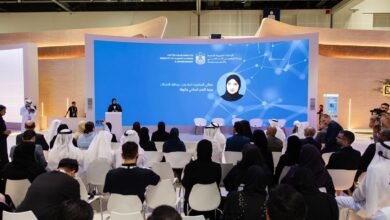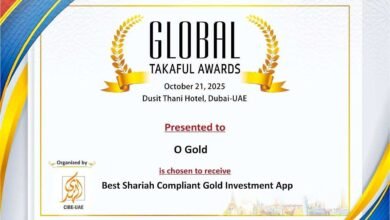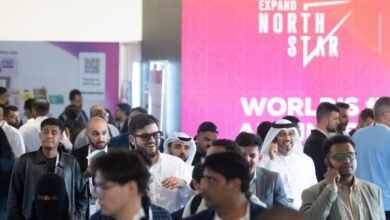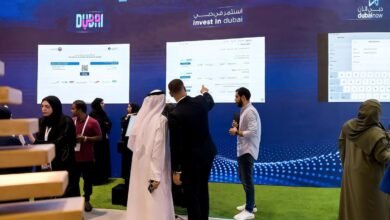700 Global Experts Unite at UAE-WEF Cybersecurity 2025 Summit
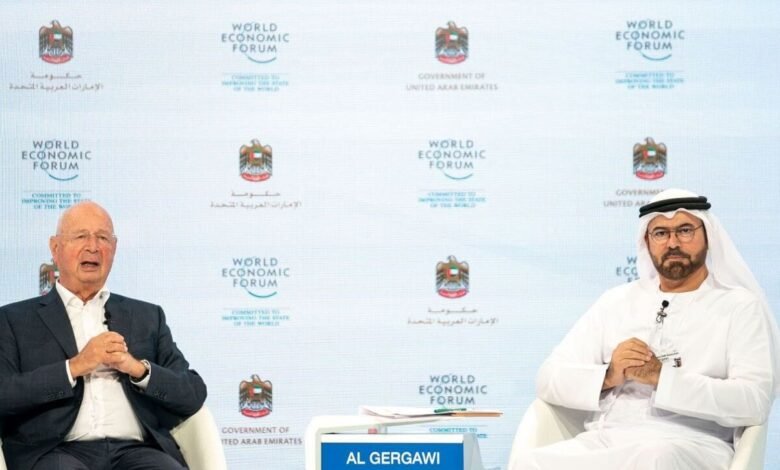
▼ Summary
– The Annual Meetings of the Global Future Councils and Cybersecurity 2025 will be held in Dubai from October 14-16, 2025, organized by the UAE Government and World Economic Forum.
– Over 700 experts from 93 countries will participate across 37 councils covering six topics: Technology, Economy, Society, Environment, Governance, and Health.
– UAE leadership emphasized commitment to global dialogue and cooperation to accelerate progress and empower communities in shaping the future.
– The event will feature new Output Labs where multidisciplinary experts develop insights on global challenges and foster deeper collaboration.
– This marks the first concurrent hosting of the Global Future Councils and Cybersecurity meetings, enhancing international cooperation on critical future issues.
Dubai prepares to host a landmark gathering of over 700 international specialists for the UAE-WEF Cybersecurity 2025 Summit and the Annual Meetings of the Global Future Councils this October. This major event, organized through the strategic partnership between the UAE Government and the World Economic Forum, will convene thought leaders from 93 nations to strengthen global dialogue and collaborative efforts aimed at forecasting future trends and tackling rapidly evolving worldwide challenges.
The comprehensive agenda encompasses 37 distinct councils, structured around six pivotal themes: Technology, Economy, Society, Environment, Governance, and Health. The collective expertise will be channeled toward advancing global initiatives designed to build a sustainable future, improve quality of life, and generate new opportunities for coming generations.
His Excellency Mohammad Abdullah Al Gergawi, UAE Minister of Cabinet Affairs and co-chair of the Global Future Councils, emphasized the nation’s dedication to fostering international cooperation. He stated that under the leadership of the UAE’s President and the directives of the Vice President and Prime Minister, the country is firmly committed to championing global dialogue. This accelerates progress and empowers communities worldwide to take an active role in shaping what lies ahead. He described this commitment as a fundamental tenet of the nation’s strategic vision, now a well-established approach evident in its influential role in driving global action for positive change.
H.E. Al Gergawi highlighted the critical timing of these meetings, pointing to the world’s rapid transformation driven by artificial intelligence and technological advances. This is compounded by escalating cybersecurity threats, a complex geopolitical landscape, economic transitions, and shifting social structures. He explained that the Councils function as an essential reference for developing future-oriented thinking and crafting tailored solutions. They provide a prominent stage for sharing knowledge, facilitating international partnerships, and converting shared visions into tangible, constructive outcomes.
The longstanding collaboration between the UAE Government and the World Economic Forum has successfully positioned the Annual Meetings of the Global Future Councils as a premier platform for building a better future. Insights generated here often become key pillars for the official agenda of the WEF Annual Meeting in Davos. This reflects a mutual vision to institutionalize future foresight, creating an open-ended international partnership that turns ideas into opportunities and visions into practical solutions supporting sustainable development.
“Shaping the future is a collective and global endeavour,” H.E. Al Gergawi stressed. “No single nation can achieve it alone without coordination and joint efforts among governments, organisations, and stakeholders across various sectors.”
Echoing this sentiment, WEF President Børge Brende affirmed that the world is navigating an unprecedented phase of interconnected political, economic, social, environmental, and technological challenges. He stated that strengthening international cooperation and integrating cross-disciplinary efforts is now indispensable for confronting urgent future issues. He described the Global Future Councils, hosted in the UAE, as a leading platform that assembles distinguished thought leaders to forecast global transformations and outline innovative solutions for a more sustainable and prosperous future.
Brende praised the strategic partnership between the UAE and the Forum as an inspiring model of international cooperation founded on a shared vision, openness, and a commitment to exchanging expertise. This ongoing collaboration, he noted, significantly boosts the global community’s capacity to spearhead constructive and sustainable change that fosters societal progress and prosperity.
For the first time, the Annual Meetings of the Global Future Councils will be held concurrently with the Annual Cybersecurity Meeting. This underscores the importance of this international platform in providing an open space for dialogue and cooperation in fields that profoundly impact communities and their futures. The Cybersecurity Meeting itself is a pivotal event, a dedicated platform focused on driving cooperation toward a more secure and resilient cyber space. It will gather more than 150 leading cybersecurity experts and over 90 speakers from business, government, international organizations, civil society, and academia.
A notable addition to this year’s Councils’ agenda is the launch of Output Labs. This initiative will bring together specialists in global economics, digital security, and climate to develop new insights and pathways. These Labs will feature multidisciplinary workshops, convening members from various councils to generate novel insights. The goal is to provide experts and decision-makers with a holistic understanding of key challenges, paving the way for deeper future collaboration.
The current edition will also see new councils formed and new members welcomed, incorporating fresh expertise from leaders with diverse backgrounds to broaden the community’s horizons. The Councils’ activities will further engage wider communities, welcoming new figures, high-ranking executives, and entrepreneurs from the Middle East and North Africa region, alongside regional sustainability leaders, to enhance both regional and global impact.
The event will also feature a network of Collaboration Clusters organizing workshops on diverse themes. These include a session by the Global Regulatory Innovation Platform (GRIP) focused on setting smarter guidelines for developing innovative, agile, and comprehensive government legislation. Another session by the UAE Centre for the Fourth Industrial Revolution (C4IR) will explore the role of multicultural robots in everyday life. The packed agenda also includes a Strategic Intelligence Activation, the Food Innovation HUB National Leadership Council Meeting, and panel discussions on Trade Tech and Digital Health.
The Global Future Councils represent the advanced stage of the impactful strategic partnership between the UAE and the WEF. Both parties are building upon over 16 years of constructive collaboration in organizing these meetings, a period that has seen 900 councils engage 12,000 officials, experts, and specialists from across the globe, all focused on the topics that most critically affect people’s lives and futures.
(Source: Economy Middle East)
